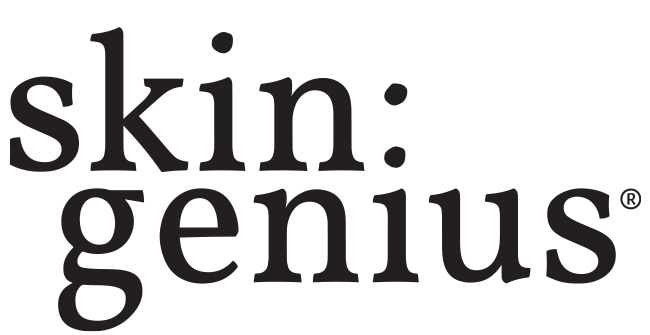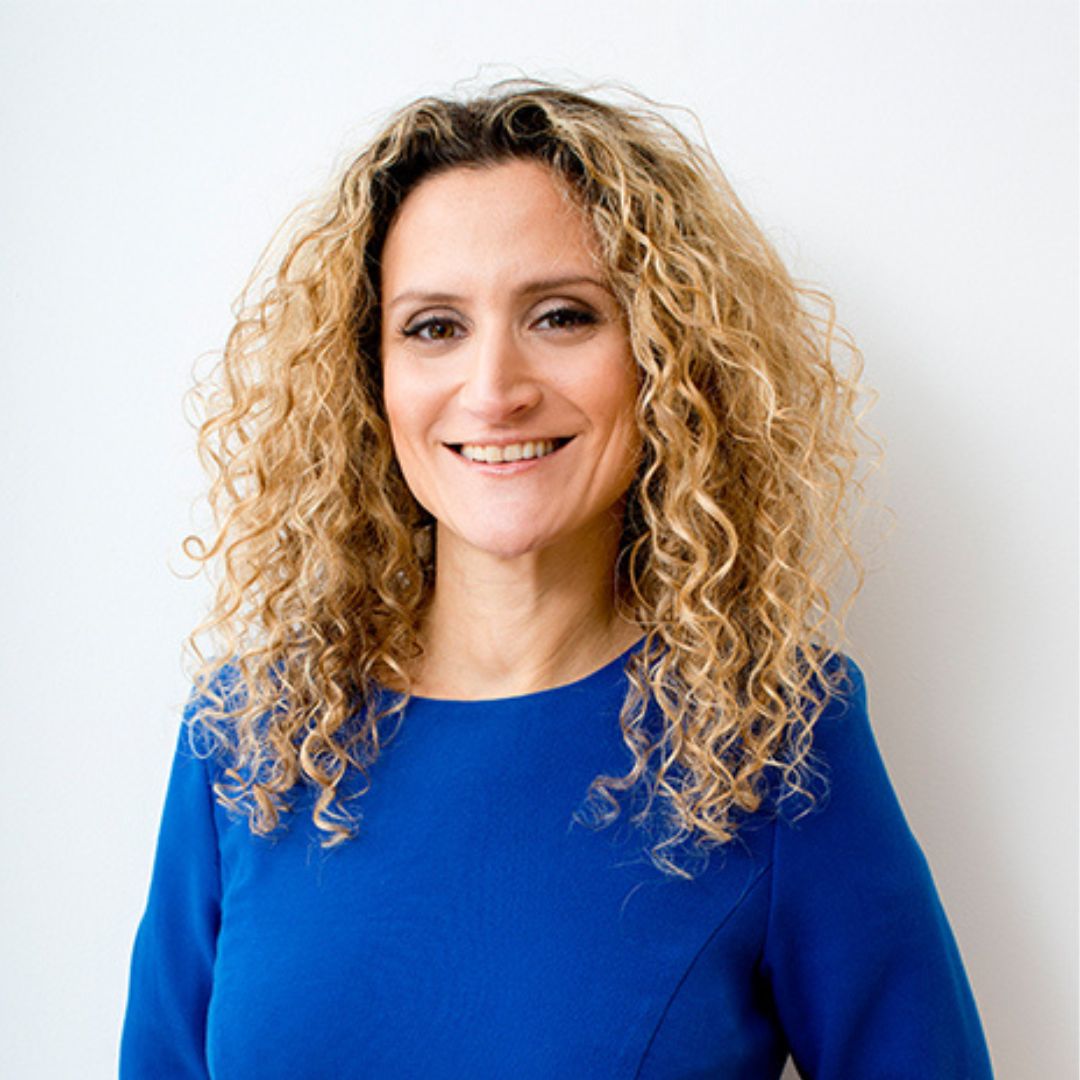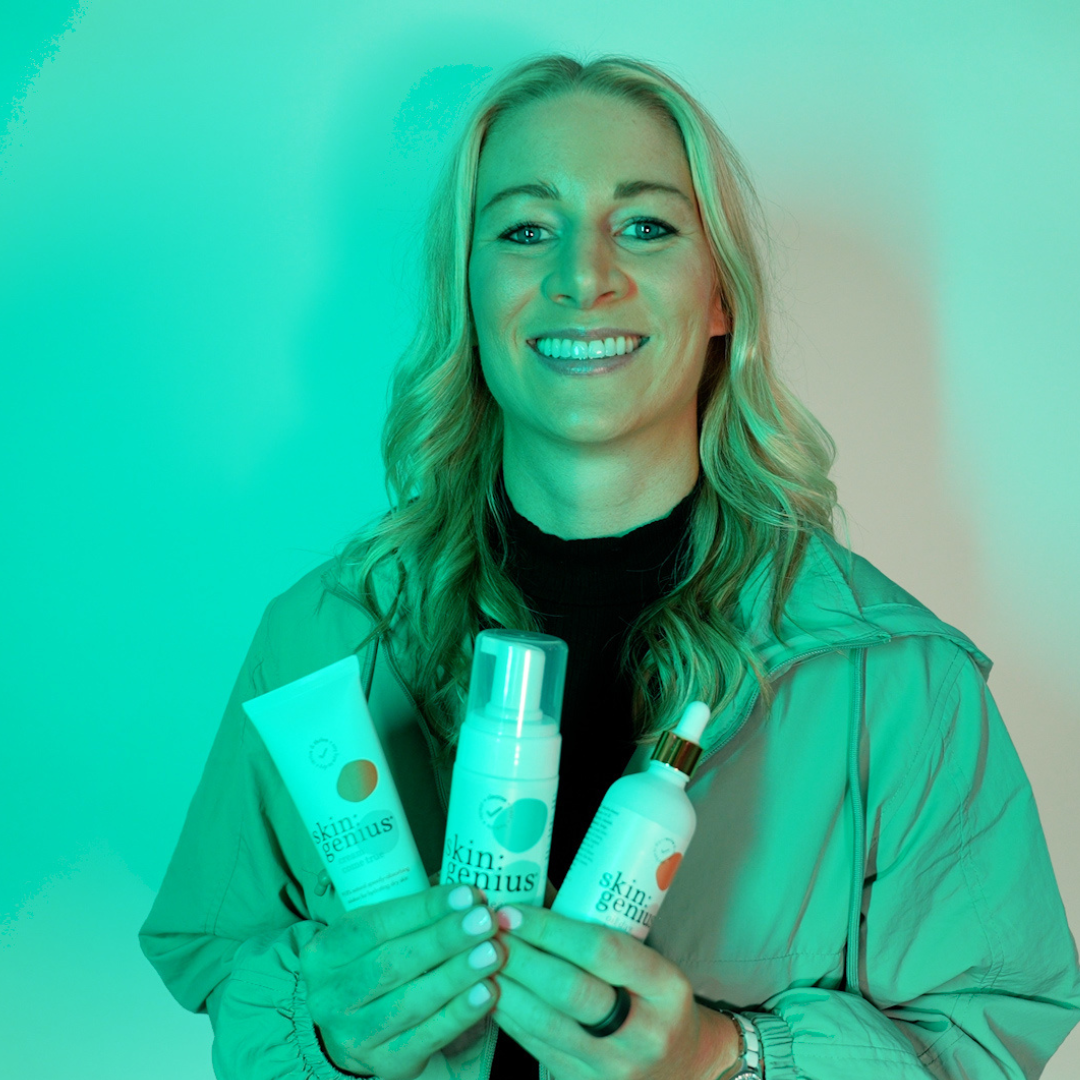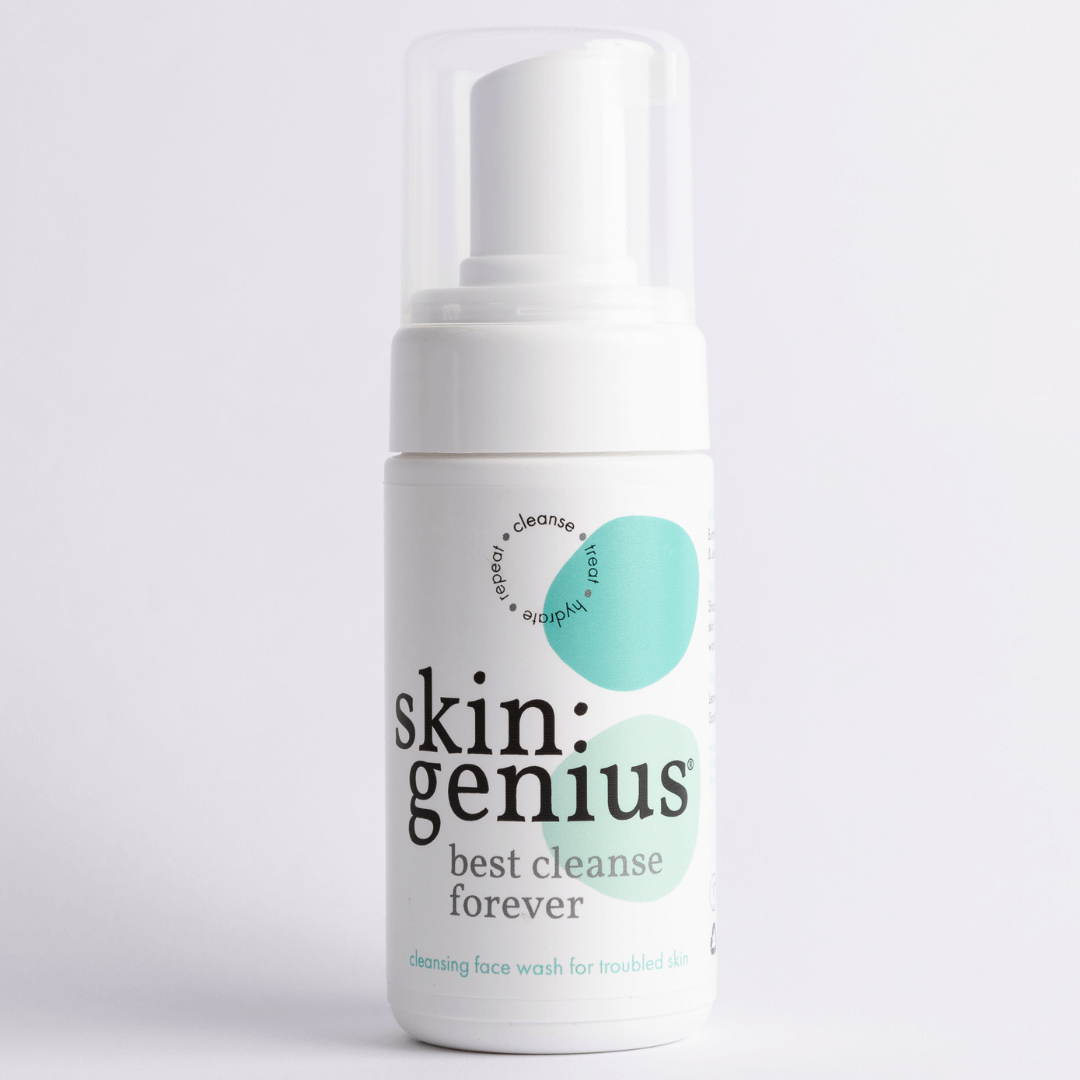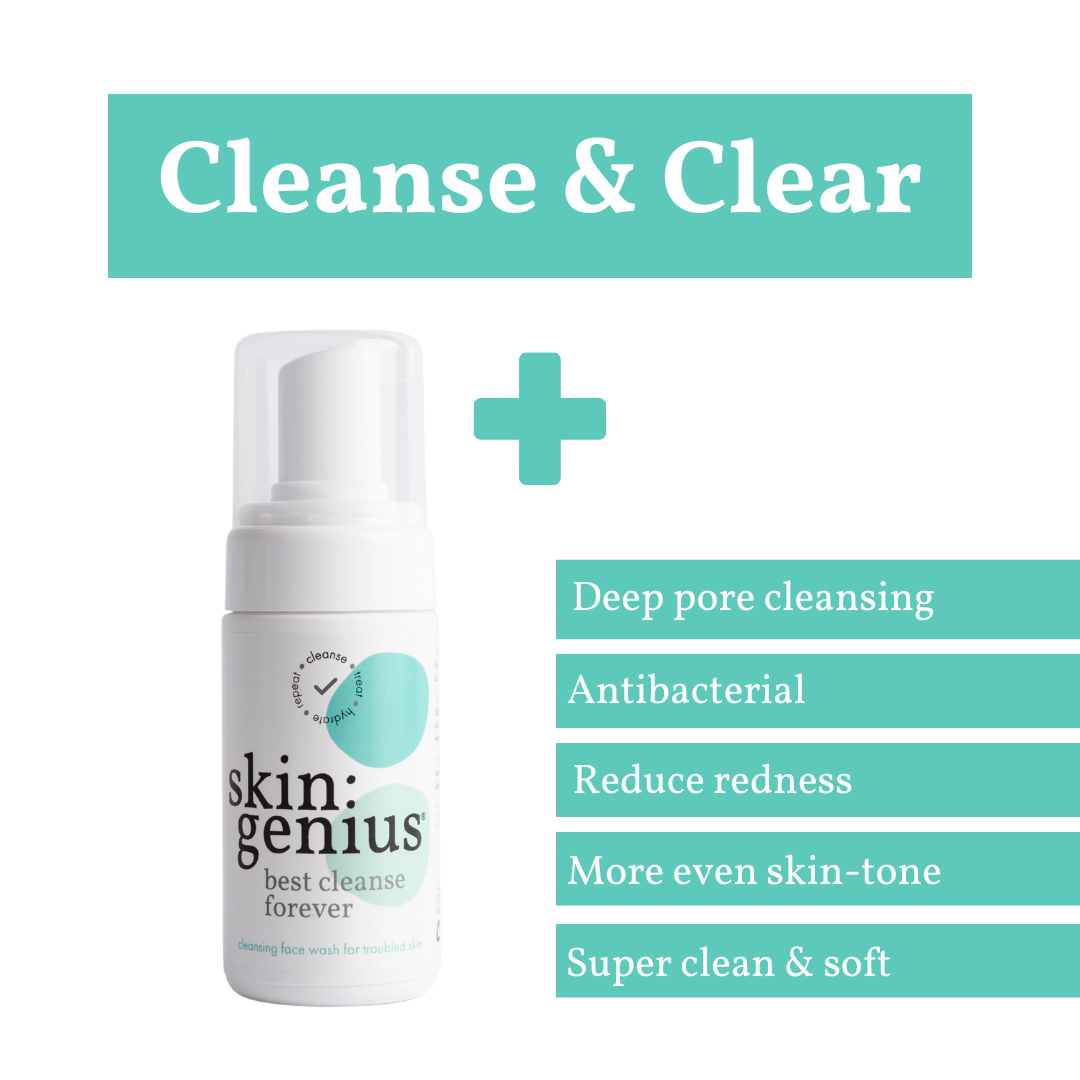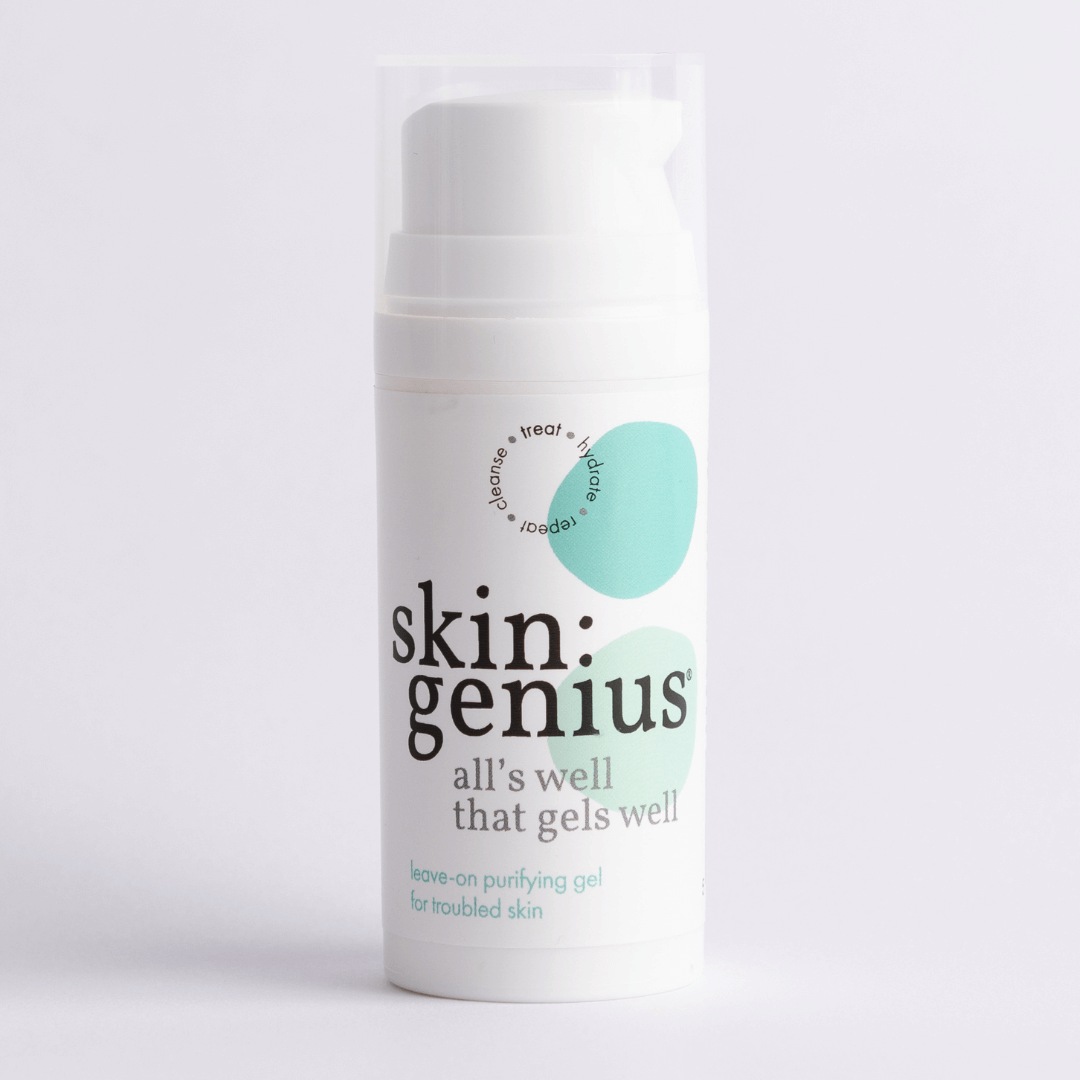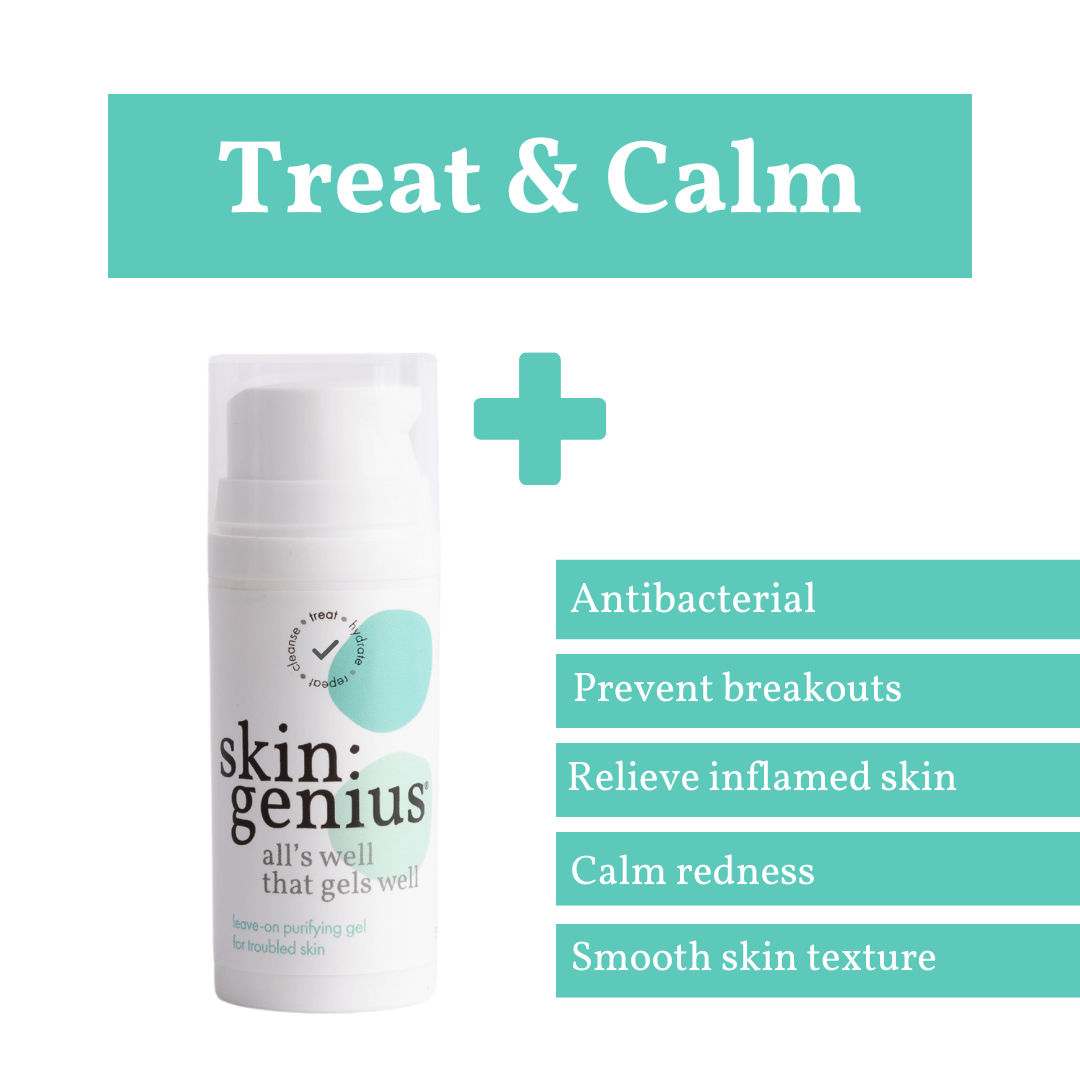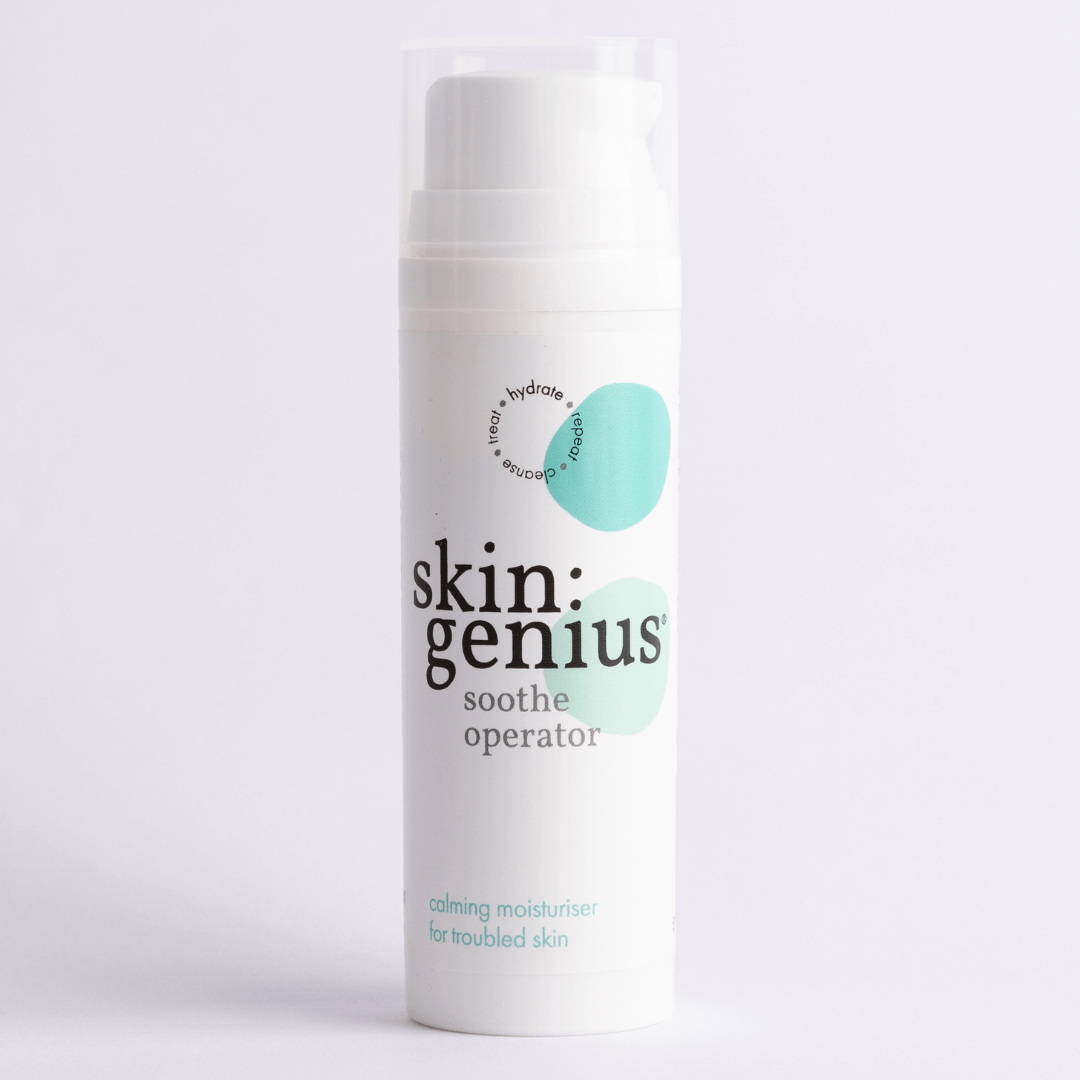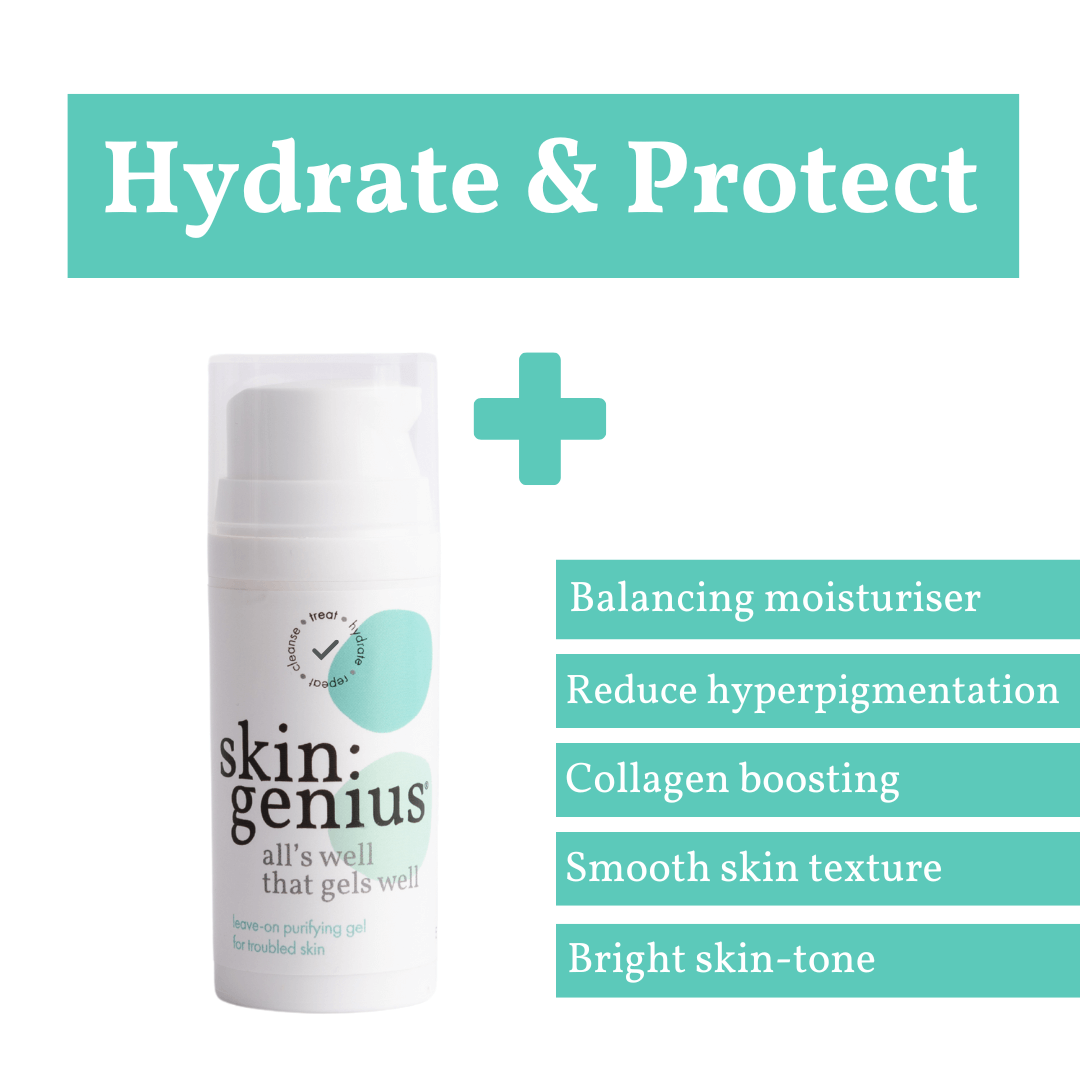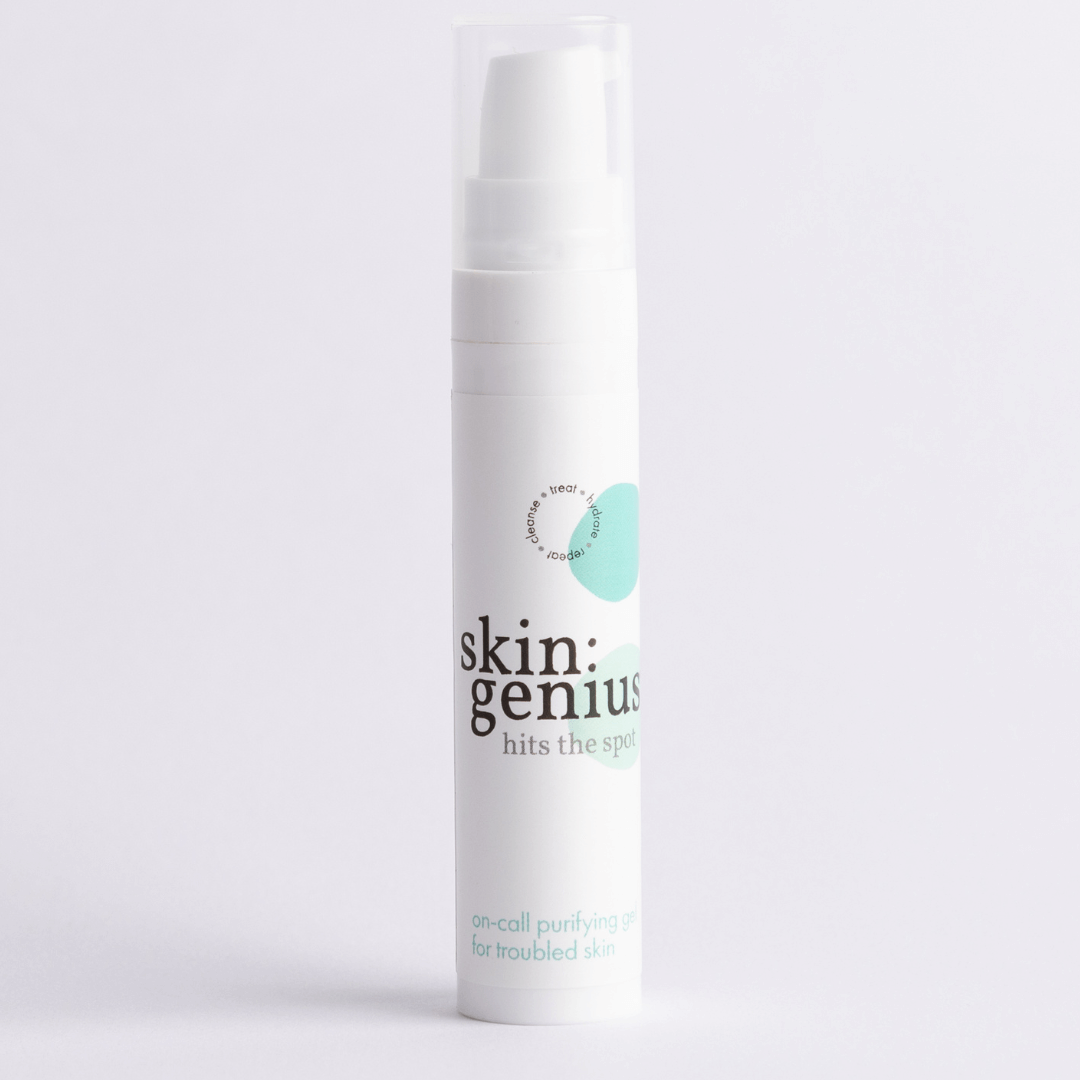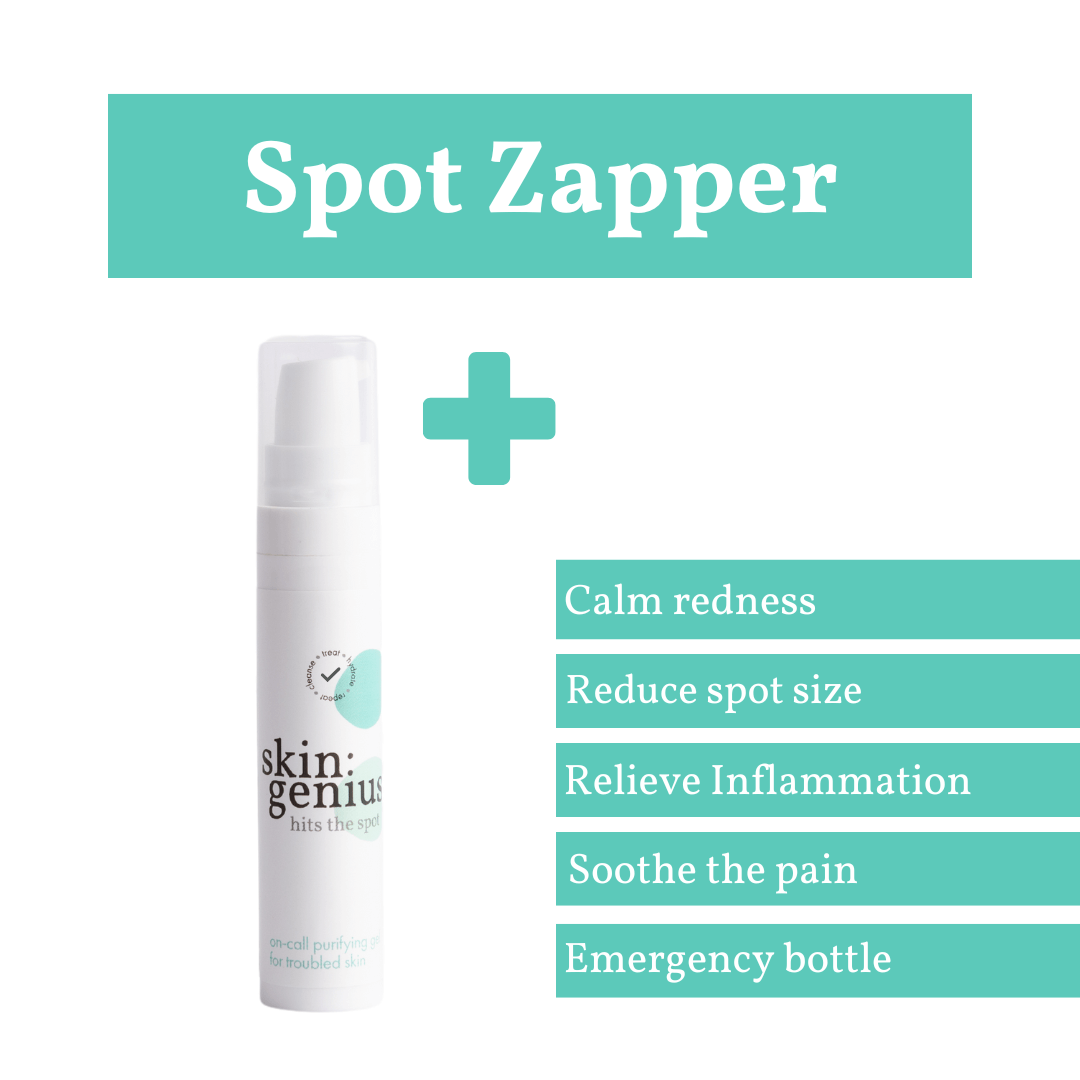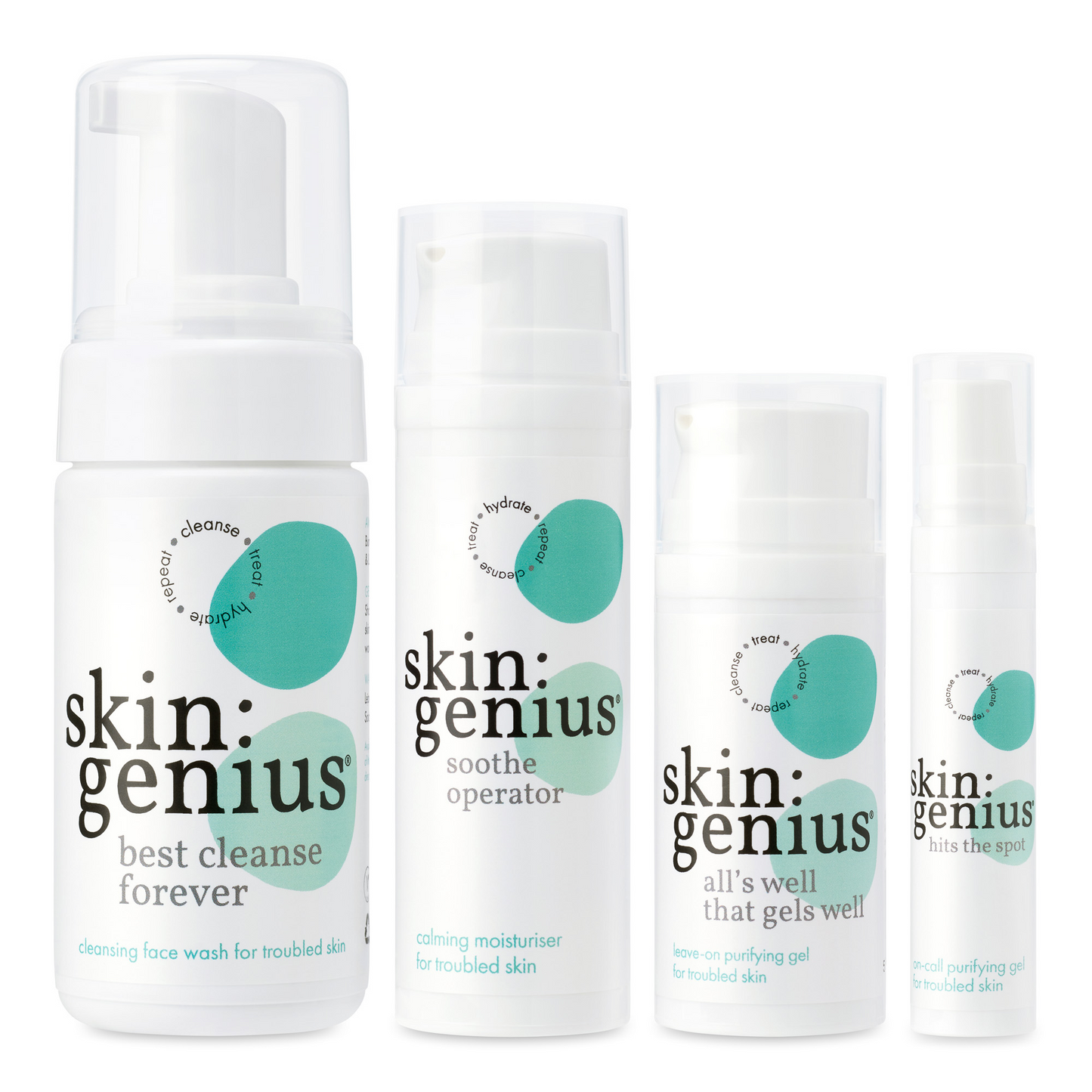Our Experts’ Top Tips for Acne Awareness Month
Knowing that 95% of the UK population suffer from one or more of the six forms of acne may make you feel slightly less alone. However, it does little to take away the misery this skin condition causes. Anything that can help reduce your symptoms will be very welcome. Here at Skin:Genius, we asked four of our expert ambassadors for their top tip to tackle and manage acne.
Kat Bright – Nutritionist
TIP: Make smart dietary choices and keep a food diary
Acne is a frustrating skin condition influenced by diet alongside genetics and hormones. While there's no one-size-fits-all solution, making smart dietary choices can play a significant role in managing acne and promoting clear healthy skin. Here are some foods to include in your diet: and some to avoid!
Include:
Antioxidant-rich foods help reduce inflammation in the body, a key factor in acne development, and promote overall skin health. Try: berries, spinach, carrots and fruit, especially oranges.
Zinc is an essential nutrient for acne management as it aids wound healing and helps regulate sebum production, reducing the likelihood of clogged pores and acne breakouts. Try: oysters, beef, tofu, lentils, pumpkin seeds and shiitake mushrooms.
Avoid
High-glycaemic foods lead to increased insulin levels and potential aggravation of acne. Avoid: sweet snacks, white bread and sugary drinks.
Processed and fried foods can also contribute to inflammation and worsen acne symptoms. Avoid: chips and foods deep fried in unhealthy fats.
Since everyone's triggers for acne can vary, keeping a food diary can be a helpful tool in identifying specific foods that may be causing flare-ups. Pay attention to how your skin reacts to different foods and consider eliminating or reducing those that seem to worsen your symptoms.
Isabelle Nunn - MPHARM (Hons) Dip NT
TIP: Try natural routes before medication and pay attention to your body and hair care products, as well as facial skincare
Acne is inflammatory in nature and can be made worse by stress or using the wrong skincare products. In extreme cases, people can be prescribed medication or a steroid cream, but I’d always try using natural skincare first.
When buying a cleanser, choose one that is gentle and supports the skin’s moisture barrier: definitely avoid any harsh, astringent products as they will strip the skin of its essential oils.
Ingredients especially good for calming skin from are Chamomile, Olive extracts, Evening Primrose and Calendula: look out for skincare products containing these.
Take a close look at your shower gels and soaps as well as your facial skincare as often these contain harsh unwanted chemicals. Opt for natural body care products to support your skin. Also, switch to natural cleaning products as using these around the home can make a tremendous difference.
Nicola Bonn – Mental Health/Anxiety Ambassador
TIP: Listen to your skin as it could be a warning of mental ill health
Mental health, gut health and skin health are intrinsically linked with increasing amounts of research showing the biological link between our brain, gut and skin. Look after your mental health by minimising stress (which will show on your skin). Find ways to calm yourself such as having a walk around the block, taking long, deep breaths in and out, stretching or doing some yoga moves. Be alert to the fact that changes in your skin could be a sign that all is not right with your mental health: don’t ignore this warning.
Val Simpson – Personal Trainer
TIP: Remove make-up before you exercise and cleanse quickly after a workout
It’s a myth to think exercise causes spots and breakouts. Quite the contrary! Physical activity helps increase blood flow to the skin, reduces stress and balances out the body’s blood sugar levels, all key to managing acne.
Exercising with acne-prone skin:
- If you wear makeup, remove it before your workout
- Avoid touching your face immediately after using gym equipment
- Keep your hair up, back and out of your face
- Cleanse your face thoroughly straight after your workout
As you can see from our experts’ tips, a combination of diet, exercise, making natural skincare choices and listening to your body all combine to help prevent acne. If you’re currently struggling with acne, following their advice should help you manage your skin better, speed its recovery and prevent further outbreaks.
Remember, none of these is a ‘miracle cure’ – it takes time, patience and care to bring about lasting change. Be kind to yourself.
Scott McGlynn - Anti-Bullying Ambassador
TIP: Don’t suffer in silence: talk to someone you trust
When you have acne or any skin condition, it goes much deeper than what you see. According to the Anti-Bullying Alliance and YMCA Report, more than 55% of young people have been bullied about the way they look, with 40% of those experiencing bullying at least once a week. This has an impact on mental wellbeing with young people experiencing anxiety and depression as a result. It’s really important to not suffer in silence: speak to someone. I was bullied at school for my acne and know first-hand, how this can make you feel. After trying to cope on my own, I spoke with my mother, who supported me. In addition to speaking to someone you trust, I would advise joining an acne awareness group for added support.
As you can see from our experts’ tips, a combination of diet, exercise, making natural skincare choices and listening to your body all combine to help prevent acne. If you’re currently struggling with acne, following their advice should help you manage your skin better, speed its recovery and prevent further outbreaks.
Remember, none of these is a ‘miracle cure’ – it takes time, patience and care to bring about lasting change. Be kind to yourself.
